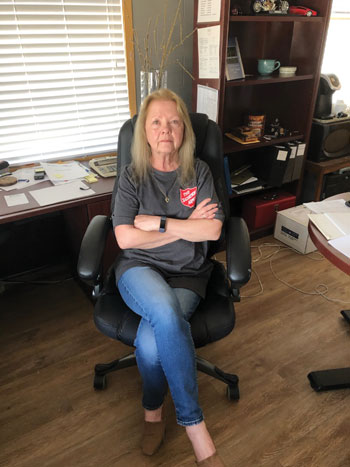 Anita Andreen is a casworker at Crossroads
Anita Andreen is a casworker at Crossroads
“We finally took him aside and told him, ‘You will either need to work on this program or we will have to ask you to leave,’ ” says Anita Andreen, a caseworker at the facility.
The remand program allows those who have been charged with an offence, and who might otherwise be detained in jail awaiting trial, an opportunity to deal with their matters while in the community instead. Braaten had already spent one week in jail awaiting trial, and now he was at risk of being sent back. He was at a crossroads in his life. Was he going to let The Salvation Army help him turn his life around?
Good Beginnings
Braaten was at the height of his career with a successful job with the City of Saskatoon for several years when one day he was let go. Being unemployed, he started incurring debt and soon after had no choice but to move back home. When the feeling of embarrassment was too overwhelming, Braaten found solace in using substances, both legal and illicit.
“It was a really low point in my life,” he says.
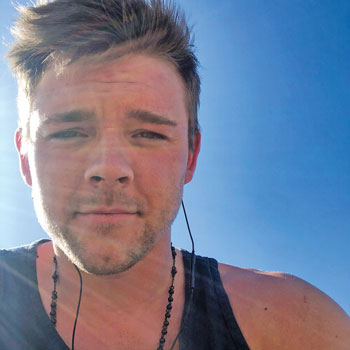 "I have no idea where I'd be if it wasn't for this place" says Matthew Braaten
"I have no idea where I'd be if it wasn't for this place" says Matthew Braaten
Around the time he lost his job, his mother had just been diagnosed with stage 4 cancer and the combination of all the misfortunes led to a turbulent relationship with his family.
One day, his substance use provoked a drug-induced psychosis where he lost his temper, broke property, threatened people and was eventually arrested.
Now, he was risking going back to a cold jail cell to await trial instead of to the comfortable bed and a warm meal that he was accustomed to at Crossroads.
It took a little over a week of levelling off with Andreen for Braaten to find the motivation he had been so desperately lacking. He began exercising, he found out that his mother’s health was improving and he started mending relationships with his family.
“Now he is actually one of our poster boys for this program—he is doing very well,” says Andreen.
In fact, Braaten is doing so well that he has since moved out from Crossroads and is now working as a chef at a renowned restaurant.
A Second Chance
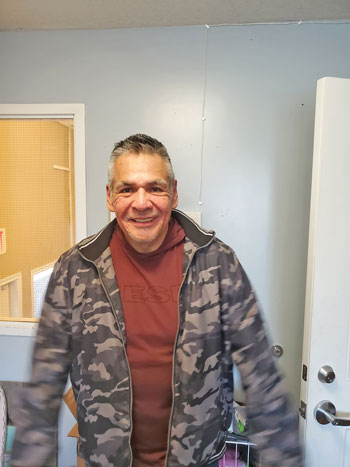 Emil Brandon's time at Crossroads has given him hope for a better future
Emil Brandon's time at Crossroads has given him hope for a better future
For some at Crossroads, their journey is not as linear. Emil Brandon is back in the CAR program for a second time after a relapse.
“They could have kept me in jail, but Anita came to court and waited for me. It made me feel special because I have nobody, then there’s someone there,” he says.
Before his first stint in the remand program in September 2019, he was no stranger to the system, having been in and out of jail for most of his life.
Brandon is of First Nations descent and grew up in Manitoba living as a child nobody wanted. He was adopted, then unadopted, and experienced homelessness from the ages of 12 to 18. When his father died suddenly, his mother’s new boyfriend kicked him and his brother out on the streets because they were “not his children.”
Four years before Brandon came to Crossroads for the first time, he spent three years in a Manitoba penitentiary for crimes he committed while struggling with drug addiction. These were the darkest years of his life, according to Brandon.
“My son had passed away and I didn’t know how to deal with it, and I just used to bury a lot of feelings,” he says.
Inside those walls of the penitentiary, Brandon experienced another tragic loss when his workout-partner-turned-best-friend died suddenly.
“When he died, I got scared because I knew where his body was, I just didn’t know where his spirit went,” he says. “It started my journey of trying to find out who God was.”
He began reading the Bible to find answers and started attending Sunday worship. Then something miraculous happened: he had a dream that changed everything.
“God came to me in a dream and told me that he loved me and that everything would be OK,” he says. When he woke up, his heart was filled with elation. “I woke up and I felt love for every human being in jail, even the guards,” he remembers.
Brandon says that he had a tough street mentality before, where so much as a glance could be seen as disrespect and had to be “taken care of.”
“A lot of my life I was in jail for pride, fighting and things like that,” he says. Since inviting Christ into his life, Brandon’s entire perspective has changed.
“Now, I have a lot of hope, and my hope is in Christ and the cross,” he says, noting that without God “it’s a lonely world.”
Proper Treatment
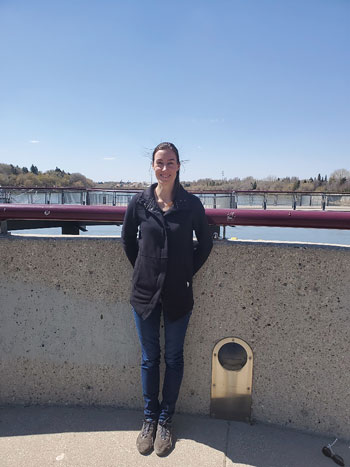 Tara Bunton, RPN, works with Andreen to provide the resources for a successful journey through the CAR program at Crossroads
Tara Bunton, RPN, works with Andreen to provide the resources for a successful journey through the CAR program at Crossroads
Clients that come to the remand program at Crossroads often struggle with drug addiction. For many, a run-in with the law could have been avoided if they had been properly diagnosed. “Often the reason they’re in jail is because of their untreated health concerns and substance use,” says Tara Bunton, the registered psychiatric nurse on-site at the facility.
She has seen clients come in with a range of mental-health struggles such as schizophrenia, bipolar disorder and substance-use disorders. Her first step is to refer them for a rapid psychiatric assessment, so they can get the help they need to be stabilized quickly.
Bunton ensures clients get the proper clinical support, so they don’t need to rely on drugs from the street.
“Tara is amazing at breaking down systemic barriers and helping the men with mental-health challenges obtain diagnoses and proper medication,” says Merry McGregor, the bail supervisor who rigorously vets clients before they are allowed into the remand program at Crossroads.
Spiritual Care
The Salvation Army cares just as much about a client’s physical and mental health as their spiritual well-being. While it is not mandatory for admission into the remand program, there is an on-site chaplain and Sunday worship services.
Matthew Braaten and Emil Brandon have both taken the opportunity to see a chaplain on several occasions. Braaten is somewhere in the middle of his spiritual journey, but he is searching for the truth. He has met with chaplain Randy Robinson for hours at a time to ask deep, existential questions. Brandon, on the other hand, is a professing Christian and meets regularly with the chaplain to be encouraged in his spiritual walk.
Wherever one is in their spiritual journey, whether searching for answers like Braaten, or growing in faith like Brandon, clients at Crossroads have access to spiritual care if they want it.
“Some of them don’t, but some of them do—the choice is there,” says Andreen.
A Lifelong Journey
Upon discharge from the remand program at Crossroads, The Salvation Army provides a suitable aftercare plan to ensure the transition to the community is not only successful but sustainable.
Sometimes this looks like being connected to services such as an addictions counsellor. Other times, clients will be helped with finding a suitable place to live. At times, Bunton has connected clients with a mental-health-approved home with a community mental-health nurse.
Some clients will also call back to have medication prescriptions refilled, or to get a referral for additional care. “I will help them even if it’s been a couple months since they’ve been out, just to maintain their stability in the community,” says Bunton.
COVID-19
During the COVID-19 crisis, the Cross- roads centre has taken extra precautions to ensure physical distancing measures are in place so the men stay healthy. This has meant transferring some of the clients, including Brandon and Braaten, to Mumford House, another Salvation Army shelter in the nearby vicinity.
For Brandon, the biggest challenge was the overwhelming stillness that came with everything going on hold, especially court dates.
“It’s just a lot of waiting for the pandemic to slow down or quit so we can get on with our lives,” he says.
Regular activities that clients might participate in were also temporarily suspended due to the virus. This meant Alcoholics Anonymous meetings, counselling appointments, self-help courses and the like were all put on hold.
However, Brandon says he and the other men found innovative ways to continue supporting each other during the hiatus.
“I’d talk to the other guys, we’d all have heart-to-hearts and it was good,” he says.
Thankful Hearts
While Braaten and Brandon are at two different stages of their journeys, they are both filled with hope and gratitude from their time in the remand program at Crossroads.
“I have no idea where I’d be if it wasn’t for this place,” says Braaten. “They give you hope. That is the key thing I’ve gotten out of everything, that there’s someone there who cares, even when you don’t think anyone should.”
Brandon shares a similar sentiment. “The CAR program has helped me to see how bad my life was getting and it encouraged me to take care of my core and carry on with life, to not chase addiction but work on myself,” he says. “The Salvation Army has always been there in my life, and a positive thing in many people lives, and I’m so thankful for that.”
Photo: 1STunningART/stock.Adobe.com





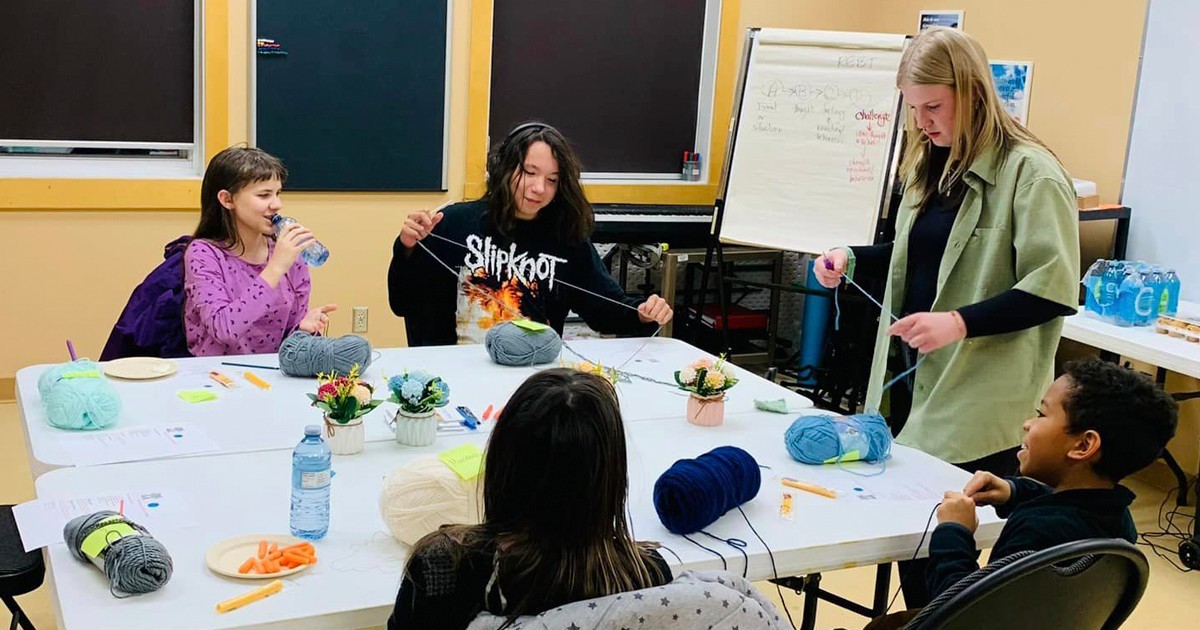
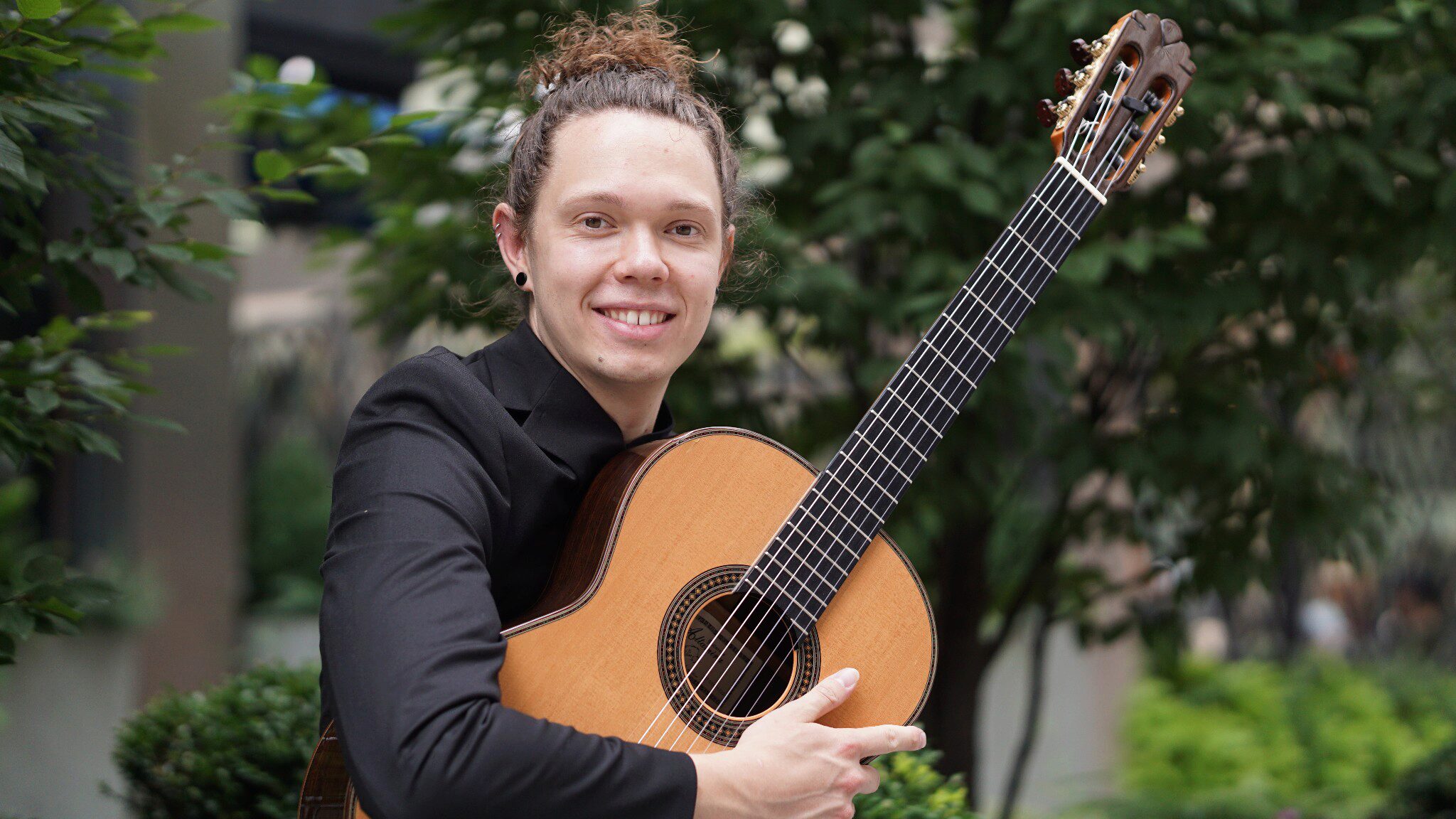
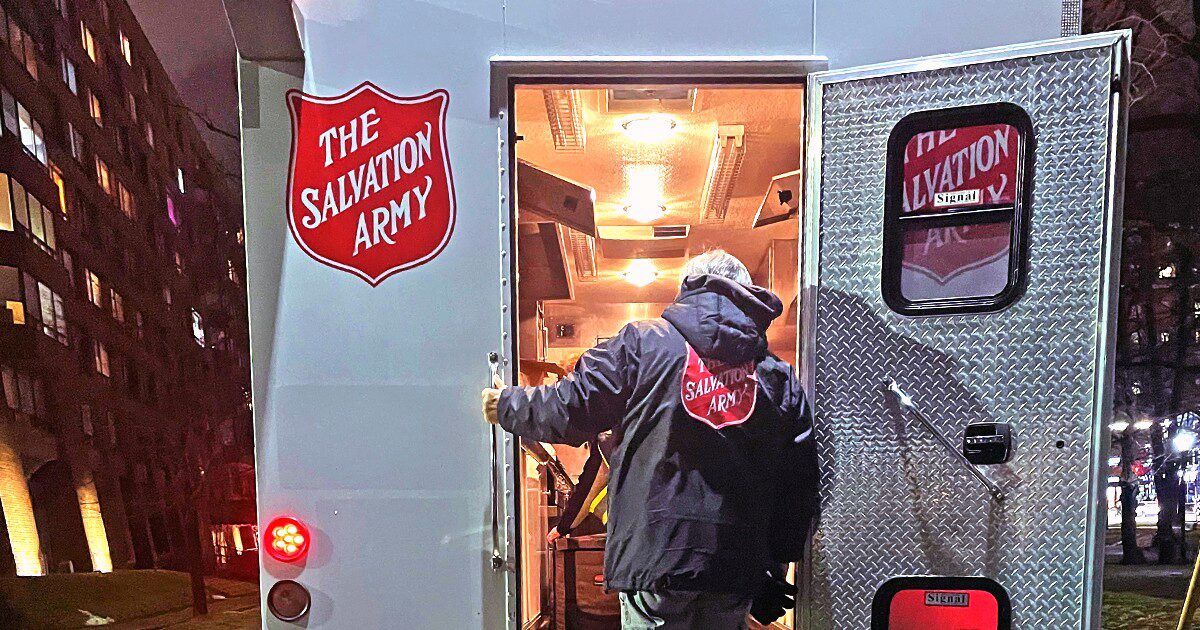


Comment
On Saturday, August 15, 2020, Jean Moulton said:
Leave a Comment